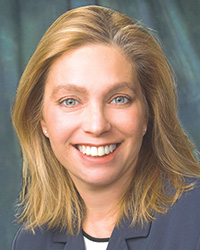The other 1031 Exchange: Personal property, an opportunity for additional tax deferral treatment - by Patricia Flowers
Most taxpayers are familiar with the advantages of structuring their real estate transactions as 1031 Exchanges. What is surprising is that many 1031 Exchanges are solely personal property transfers or have a personal property component attached to the sale. For example, when a hotel is sold it often includes personal property items such as beds, furniture, etc. Personal property exchanges are often overlooked causing taxpayers to miss a great opportunity for additional tax deferral treatment.
For 1031 Exchanges, “personal property” does not refer to an individual’s belongings or personal use assets. It refers to non-real estate assets, which have been held for productive use in a trade or business or for investment. Examples of personal property transactions include works of art, airplanes, precious metals, car fleets, business equipment, charter boats, fishing vessels, trucks, construction or agriculture equipment, as well as intangible property, such as franchise licenses, cell towers, website domain names or broadcast spectrums and copyrights.
Typically the major benefit of structuring a personal property sale as a 1031 Exchange is the deferral of the recapture tax on depreciation that was previously deducted by the taxpayer. Many taxpayers and advisors are not aware that when you complete a 1031 Exchange, the deprecation recapture tax that would normally be due is deferred into the new property. Be aware, ordinary income tax on the gain subject to personal property depreciation recapture can be substantial (upwards of 35%). Further, it is important to note that even if an asset’s value at sale may be less than its original price, such that there is no gain from appreciation, there may still be a taxable gain if the tax basis is less than the fair market value of the asset. This situation routinely occurs with depreciable business use assets.
Since personal property depreciates on a faster scale than real property, avoidance of depreciation recapture is often the reason for structuring a Personal Property Exchange, and many do not realize that taxable gains on these properties can be deferred – a huge tax savings!
The major difference between a Real Estate 1031 Exchange and a Personal Property 1031 Exchange is the replacement property requirement. In a real estate exchange the like-kind test is fairly flexible. All real estate within the United States is like-kind to all other domestic real estate, so a taxpayer may exchange raw land for an apartment building or a commercial building.
The concept of like-kind is much narrower for personal property assets. Tangible depreciable personal property assets may be either “like-kind” (sharing the same nature and character), such as front-loader for a front loader, or “like-class,“ included within the same General Asset Class (described in Rev. Proc. 87-56) or Product Class (identified with the same NAICS Code), such as a front loader for a back hoe or other construction equipment. If the assets are not depreciable, such as artwork, then they must be like-kind to each other; the asset and product classes do not apply. Intangible assets are like-kind if the “nature or character of rights involved” and the “nature or character of the underlying property to which the intangible personal property relates” are the same. For instance, a copyright on a novel is like-kind to a copyright on a novel but is not like-kind to a copyright on a song.
In conjunction with your tax advisors, Investment Property Exchange guides all through the regulations with confidence and experience, keeping all current on tax and industry issues pertaining to 1031 Exchanges. Due to the varied nature of businesses and personal property as a whole, thorough review of the property’s tax situation and its asset allocations well in advance of a sale is prudent.
Patricia Flowers, vice president of Investment Property Exchange Services, Inc. (IPX1031), Boston, Mass.
Newmark negotiates sale of 10 Liberty Sq. and 12 Post Office Sq.

Make PR pop by highlighting unique angles - by Stanley Hurwitz

Four tips for a smooth 1031 Exchange - by Bill Lopriore

Five ways to ruin a Section 1031 Like-Kind Exchange - by Bill Lopriore









.png)
